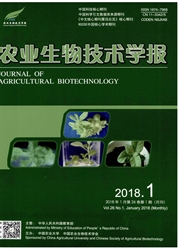

 中文摘要:
中文摘要:
本研究旨在确定FSH对体外培养条件下仔猪睾丸支持细胞周期的影响。实验以培养的仔猪睾丸支持细胞为材料.通过添加各种信号通路的抑制剂,采用流式细胞术测定细胞周期中的DNA含量,分析细胞周期细胞增殖指数(PI)和Sa细胞指数(SPF)的变化。结果表明:低浓度的FSH(0~50ng/mL)能够促进睾丸支持细胞周期的转化(P〈0.05);而高浓度的FSH(100ng/mL)则抑制睾丸支持细胞周期的转化(P〈O.05);FSH以时间依赖性促进支持细胞周期的转化,24h时达到高峰。ERKl/2抑制剂U0126、P13K抑制剂10-DEBC以roTOR信号通路抑制剂rapamycin均能降低FSH诱导的支持细胞周期的转化(P〈0.05)。但3种抑制剂单独作用时对FSH诱导的支持细胞周期的转化没有明显影响(P〉O.05)。这表明了FSH对仔猪睾丸支持细胞周期的调节呈现一定的时间一剂量依赖性.ERKl/2、P13K以及mTOR级联参与了这一过程。
 英文摘要:
英文摘要:
The objective of the study was to identify whether and how FSH regulated cultured immature boar sertoli cell cycle. In the study, cultured immature boar sertoli cells were used as material, and flow cytometry was used to detect the DNA content of the cells. Cell proliferation index (PI) and S phase cell index (SPF) were calculated to analyze cell cycle. Low concentrations of FSH (0-50 ng/mL)could promote cell proliferation (P〈0.05); concentration of FSH (100 ng/mL) inhibited the process (P〈0.05). FSH also could enhance cell proliferatioin time dependence , and the effect was most obvious in 24 h. Futhermor, U0126, 10-DEBC, rapamycin reduced FSH -induced cell proliferation (P 〈0.05). But the three inhibitors alone had no obvious effect on cell cycle (P〉0.05). These results inferred that FSH promotes sertoli cell proliferation in time and dose dependence way; ERK1/2 and PI3K and roTOR cascade are involved in this process.
 同期刊论文项目
同期刊论文项目
 同项目期刊论文
同项目期刊论文
 期刊信息
期刊信息
